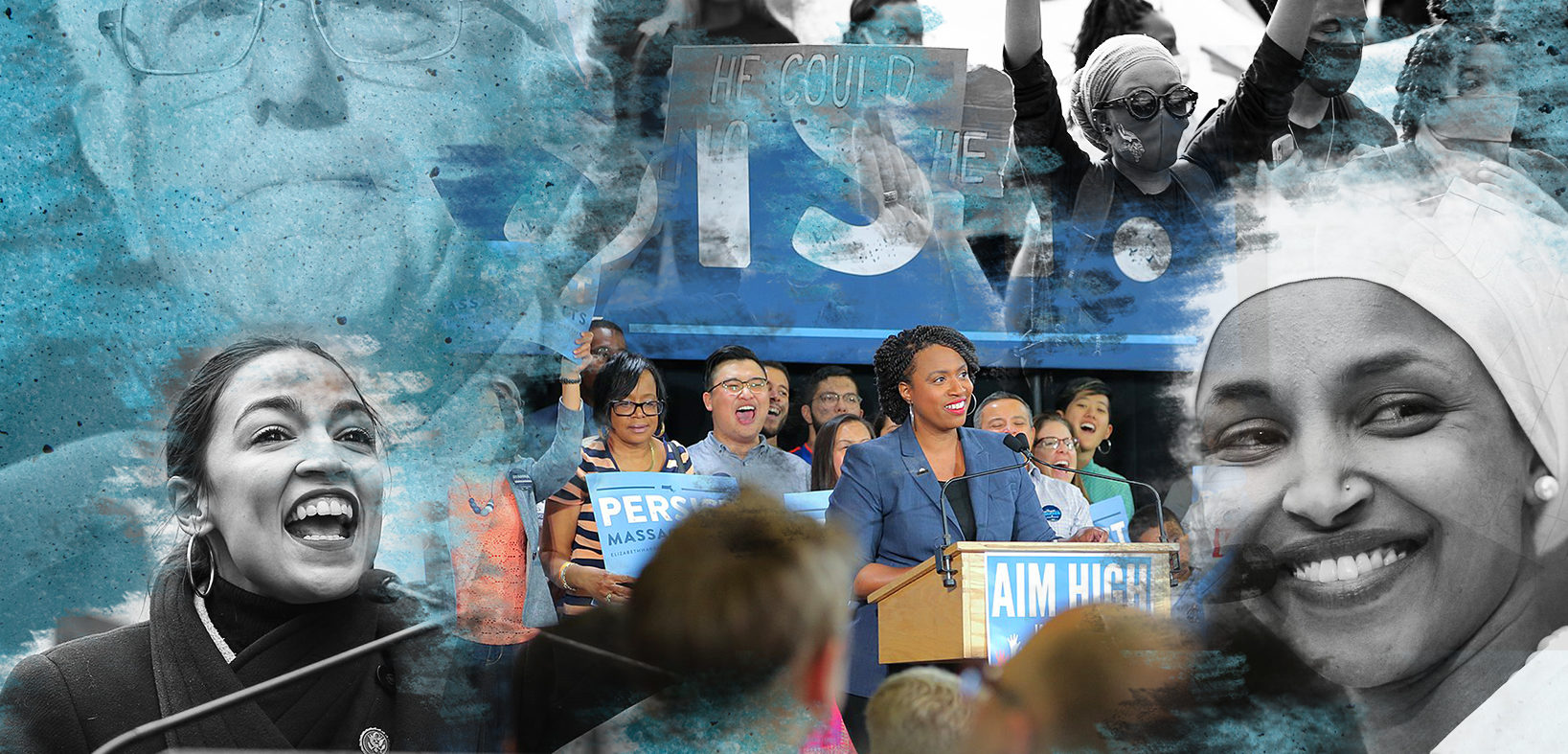Beyond Bernie: Amidst National Unrest, Can Progressive Candidates Salvage the Democratic Party?
by Freddie Stuart and Aaron White
3 June 2020

Bernie Sanders’ decision to suspend his presidential campaign on 8 April dealt a painful blow to the hopes and dreams of leftists all around the world.
Sanders was the first primary candidate in history, from either party, to win the most votes in each of the first three state contests.
But as the prospect of putting a self-described democratic socialist in the White House became increasingly tangible, the Democratic party establishment mobilised around former vice president Joe Biden, ensuring his success in key states on Super Tuesday.
Now, as the police killing of George Floyd tips anger at an institutionally racist system into nationwide civil unrest, the choice at the ballot box stands between an overt white supremacist in Donald Trump, and an architect of mass incarceration in Joe Biden.
As voters approach what is potentially the most important presidential election in their history, the political class is failing to respond to the revolutionary fervour of the American people.
Unprecedented circumstances.
Whilst Biden and Trump bungle and gaffe their way toward a showdown in November, these protests – amidst the deadliest Covid-19 outbreak in the world – are playing havoc with all political predictions.
With over 100,000 fatalities, 15% unemployment and a system of private insurance that has left millions unable to access adequate healthcare, the pandemic – which disproportionately impacts communities of colour – has already exposed the cruel dysfunctionality of America’s economic and political system.
Now, with institutional racism once again laid bare by the murder of yet another unarmed black man, will an inherently anti-systemic mobilisation translate into conventional party politics? Can insurgent left candidates position themselves as the electoral outlet for this discontent?
Whilst the hopes of Sanders’ ‘political revolution’ may have been lost, down-ballot candidates are championing bold progressive agendas in primaries all across the country.
In 2018, organisations such as Justice Democrats and Brand New Congress facilitated a bloc of working class Democrats in their bids for office. This unapologetically radical group, who refused corporate PAC money, won a set of notable victories as part of the ‘blue wave’ that saw Democrats take back the House of Representatives in the midterm elections.
The ‘squad’, comprised of Alexandria Ocasio-Cortez, Ilhan Omar, Rashida Tlaib and Ayanna Pressley, were subsequently catapulted into the national spotlight.
Who’s in the Squad? Check in! ⬇️ 🙋🏽♂️🙋🏻♀️🙋🏿♂️🙋🏼♀️🦹🏼♀️ https://t.co/G48rsQMqk6
— Alexandria Ocasio-Cortez (@AOC) 16 July 2019
They joined allied incumbents such as Rep Ro Khanna and Pramilla Jayapal to shake the Washington consensus and challenge the entrenched governing agenda of the Democratic leadership.
The impact of the so-called squad provoked an evident change in US discourse. Mainstream media hosts began to discuss marginal taxation rates; architects of US imperialism were questioned in House hearings, and the Green New Deal became the subject of everyday conversation.
In 2020, many congressional races follow a similar dynamic; working class community organisers, often from minority backgrounds, challenging corporate backed incumbents; grassroots funded, people-powered campaigns facing-off against well-resourced establishment counterparts.
Despite falling short, the Sanders campaign demonstrated that progressive policies are now overwhelmingly popular with the American electorate.
Single-payer Medicare-for-All is now polling at an all-time high of nearly 70% amongst voters from both parties, whilst support for a Green New Deal jobs guarantee remains strong.
Yet given the context of intersecting crises, will these popular policies translate into progressive victories?
An uncertain future.
So far, 2020 has been a mixed bag for American leftists down the ballot. Unlike 2018, this time incumbents in safe blue districts are not taking their primaries for granted.
Amongst a set of disappointing results on 3 March, much touted progressive favourite Jessica Cisneros narrowly lost a challenge in Texas by 51.8% to 48.2% to conservative Democratic incumbent Henry Cuellar.
More recently however, progressive candidate Marie Newman defeated regressive anti-choice Democrat Dan Lipinksi in a rematch of the 2018 primary for Illinois’ 3rd congressional district.
I want to thank each and every volunteer who has helped our campaign over the last three years. Together, we won in the face of adversity. We not only defeated a long-time incumbent, but we powered through GOTV in a public health crisis. This is the best team out there, period. pic.twitter.com/mQIk6px2wu
— Marie Newman (@Marie4Congress) 19 March 2020
Over the coming months, many more of these vital races will define the shape and politics of the 117th Congress.
Whilst Biden’s announcement of joint policy task forces with representatives from the Sanders campaign is a boost to those hoping to push the nominee to the left, congressional candidates offer the best prospect of electoral success for progressives in 2020.
Electing a cohesive block of down-ballot leftists to join the small but influential cohort currently residing in Washington would put further pressure on the Democratic leadership to institute the bold policy agenda that this moment requires.
During this unprecedented moment we are faced with many electoral unknowns.
Can insurgent candidates position themselves at the centre of protestors’ discontent? Will broad mail-in voting boost turnout in favour of progressives? Or will mass disenfranchisement with the political establishment produce even greater electoral apathy?
As it stands, the Democratic party is failing to listen to the voices of the people on its streets. The coming months will determine whether down-ballot candidates can realign the party and salvage the last vestiges of trust in electoral politics.
Freddie Stuart is the producer of the ourVoices podcast at openDemocracy. Aaron White is the North America Editor of the ourEconomy section at openDemocracy. He is based in New York. Their recent work covering the US elections can be found here.
This article is the first instalment in Beyond Bernie, a new series tracking the US 2020 elections.